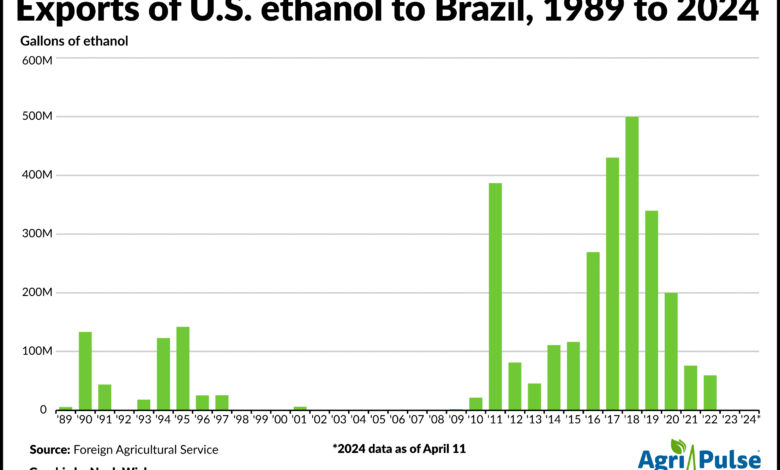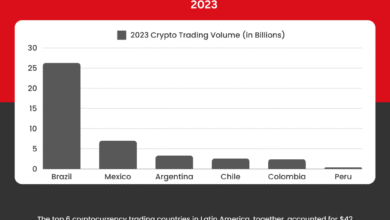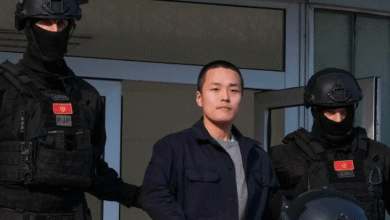Brazil Tariff Countermeasures Amid Escalating Trade Conflict

As Brazil takes bold steps to confront the challenges posed by US tariffs, the country has unveiled a series of tariff countermeasures designed to protect its economy amid escalating trade tensions. The recent imposition of a 50% tariff regime by the Trump administration has triggered a significant Brazil trade conflict, prompting officials to act swiftly to mitigate its adverse effects on national producers. Rather than retaliating with reciprocal tariffs, Brazil’s President Lula has opted for a strategic approach, focusing on economic measures that safeguard the interests of local industries. This proactive stance includes a substantial aid package aimed at alleviating the burdens of these tariffs, emphasizing the government’s commitment to ensuring a resilient Brazil economy. As the U.S. continues to reshape its trade policies, the implications of Brazil’s tariff countermeasures will undoubtedly reverberate across the global economic landscape, highlighting the complexities of international commerce in an era fraught with uncertainty.
In light of recent developments, Brazil is making significant moves to counter the adverse effects of punitive tariffs imposed by the United States, marking a noteworthy chapter in the ongoing dialogue surrounding trade relations. The tension stemming from the Trump administration’s trade policies has escalated, creating a fraught environment for Brazilian exporters who must navigate the impact of these harsh economic penalties. To bolster domestic industry and support aggrieved sectors, Brazil has introduced an array of supportive measures, including financial assistance aimed specifically at mitigating the financial strain caused by the tariffs. These strategic interventions reflect a broader trend of nations seeking to protect their economic sovereignty amidst external pressures and have been highlighted as vital components of Brazil’s response to the unfolding trade dispute. As the situation evolves, the world watches closely how Brazil will balance between maintaining diplomatic relations and reinforcing its economic stability.
Brazil’s Tariff Countermeasures Explained
In response to the escalating trade conflict, Brazil has implemented strategic tariff countermeasures aimed at alleviating the financial pressure on its domestic producers. With the Trump administration’s new 50% tariff regime actively affecting Brazilian exports, these measures focus on providing crucial support rather than engaging in tit-for-tat tariff imposition. Brazil’s administration recognizes the importance of maintaining diplomatic relations with the U.S. while shielding its economy from adverse impacts. The decision not to impose reciprocal tariffs speaks volumes about Brazil’s intention to prioritize constructive dialogue over retaliation.
The countermeasures represent a calculated approach to stimulate the Brazilian economy amidst challenging trade dynamics. With an understanding of the detrimental effects that such high tariffs can have, the Brazilian government has mobilized resources, including a significant credit line dedicated to affected industries. Such initiatives are essential to bolster local businesses, preserve jobs, and mitigate the long-term repercussions of damaging trade policies. This proactive stance demonstrates Brazil’s commitment to protecting its economic interests without escalating the conflict.
Impact of U.S. Tariffs on Brazil’s Economy
The imposition of high tariffs by the Trump administration is expected to strain various sectors within the Brazilian economy, particularly those heavily reliant on exports. As Brazil engages in this trade conflict, the repercussions of these tariffs could cascade through its supply chains, impacting production and potentially inflating consumer prices. Economists highlight that this 50% tariff increase may significantly decrease Brazil’s competitiveness in the global market, necessitating the quick enactment of support measures to cushion the blow.
Moreover, businesses in Brazil must adapt to these new tariff realities while navigating potential retraction in U.S. demand. With an engagement strategy focused on securing aid for local firms affected by these tariffs, Brazil seeks to ensure that its economy remains resilient during this turbulent period. The additional funding provided aims to offset potential losses, allowing companies to continue operating and innovating in a challenging environment. The Brazilian aid package, which reflects both immediate and long-term priorities, can serve as a blueprint for other nations facing similar tariff-related challenges.
Sovereign Brazil: The New Aid Package
The ‘Sovereign Brazil’ initiative underlines Brazil’s proactive approach to economic adversity by allocating $5.55 billion specifically to aid those industries most affected by the U.S. tariffs. Designed to provide urgent financial assistance, this credit line will play a pivotal role in mitigating the trade conflict’s adverse effects on local production. Additionally, offering tax reductions for smaller companies enhances inclusivity within the economic relief package, ensuring that even the smallest players in the market receive the necessary support amidst escalating tensions.
This aid package reflects a strategic policy choice by President Lula that emphasizes national resilience. It acknowledges the economic threats that arise from international disputes while promoting local development. As Brazilian officials champion these measures, they send a clear message to both domestic stakeholders and international observers: that Brazil is committed to navigating the current trade conflict with a focus on national sovereignty and economic stability. This initiative could set a precedent for how countries respond to external economic pressures while maintaining bilateral relations.
Navigating Future Trade Relations with the U.S.
Brazil finds itself at a critical crossroads in its trade relations with the United States, particularly with the ongoing tariffs affecting its export economy. As tensions rise, Brazilian leadership is keen on navigating this landscape through diplomacy rather than aggression. Despite provocations, President Lula emphasizes continual negotiations, prioritizing constructive engagement to potentially address the underlying issues that prompted the tariff imposition in the first place. This diplomatic approach could help in restoring trust and cooperation on trade matters.
However, the road ahead remains fraught with challenges. With increasing threats of further tariffs and sanctions, Brazilian lawmakers and trade officials must stay vigilant in crafting policies that not only protect domestic industries but also pave the way for peaceful negotiations. The call for dialogue from Brazilian representatives indicates a willingness to resolve the trade conflict amicably, underscoring Brazil’s dedication to maintaining its sovereignty while pursuing national economic interests.
The Role of Brazilian Congress in Trade Policies
The Brazilian Congress plays a crucial role in shaping the national response to the trade conflict ignited by U.S. tariffs. While the executive branch, led by President Lula, has the authority to propose significant aid packages, such initiatives require congressional approval to be fully enacted. This interplay between the executive and legislative branches illustrates the checks and balances that govern Brazil’s economic responses, ensuring that policies serve the country’s best interests amidst global pressures.
Effective collaboration between the government and Congress is essential for the successful implementation of mitigation strategies against U.S. tariffs. Legislative support is critical not only for the aid package introduced as part of the ‘Sovereign Brazil’ initiative, but also for any long-term economic measures that might arise as negotiations progress. By fostering a united legislative front, Brazilian policymakers can assert greater leverage in dialogues with U.S. counterparts and effectively advocate for favorable terms that might mitigate future trade discrepancies.
Understanding Tariff Impacts on Brazilian Industries
The 50% tariff regime imposed by the Trump administration casts a long shadow over various Brazilian industries, especially those heavily reliant on the export of goods to the United States. Key sectors such as agriculture, manufacturing, and technology are feeling the pinch, as potential price hikes could lead to diminished competitiveness in the U.S. market. Consequently, Brazilian producers are forced to reassess their pricing strategies and market approaches while facing challenges in maintaining their export volumes.
To understand the tariff impacts, it is critical to analyze which industries are most vulnerable. For instance, agricultural exports – a backbone of the Brazilian economy – rely on free access to international markets. These tariffs threaten to disrupt supply chains and decrease income for local farmers. Addressing these challenges requires targeted initiatives and support measures that bolster industries at risk, an approach that Brazil’s government has recognized in its recent economic planning.
The Importance of Diplomacy in Trade Conflicts
Diplomatic efforts are at the forefront of Brazil’s strategy in responding to the trade conflict with the United States. By prioritizing negotiation over aggressive retaliation, Brazil aims to preserve bilateral relations while safeguarding its economic interests. President Lula’s commitment to diplomacy can serve as a stabilizing force amid the uncertainty surrounding international trade dynamics. This focus on communication not only minimizes escalation but also opens avenues for finding common ground and long-term solutions.
As Brazil enhances its diplomatic outreach, it can explore alternative paths to address trade disputes without resorting to tariffs. Engaging in discussions with U.S. officials about trade practices and the underlying issues fueling the tariffs could lead to more constructive outcomes for both countries. By harnessing diplomacy effectively, Brazil can not only safeguard its economic stability but also potentially reshape the trading environment in a mutually beneficial direction.
Brazilian Sovereignty in Trade Negotiations
Amidst the ongoing trade conflict, Brazil continually emphasizes its sovereignty in negotiations with the U.S. President Lula’s firm stance against external pressures highlights the importance of maintaining national integrity in the face of economic coercion. By asserting that Brazil will not compromise its independence for the sake of appeasing foreign demands, the administration sends a strong signal about the country’s commitment to self-determination and economic autonomy.
This assertion of sovereignty can have far-reaching implications for Brazil’s trade policies and international relations. While it may lead to short-term challenges, including potential retaliation from the U.S., it also positions Brazil as a formidable player willing to stand firm in asserting its rights. Emphasizing sovereignty not only strengthens domestic support but also enhances Brazil’s negotiating power, allowing it to seek favorable outcomes in future dealings with international partners, thus reinforcing its status in global trade.
Brazil’s Future in Global Trade
Looking forward, Brazil’s participation in global trade will likely hinge on its ability to adapt and respond to the changing dynamics brought about by international tariffs and trade tensions. With ongoing discussions centered around economic aid and support for impacted sectors, Brazil is positioning itself to navigate these challenges effectively. By fostering diversified trade partnerships and strengthening local industries, Brazil aims to mitigate the effects of U.S. tariffs and maintain its status as a key economic player on the world stage.
Moreover, the current trade conflict underscores the need for Brazil to continue investing in its industries and enhance competitiveness. As Brazil formulates policies that address the implications of tariffs, it must also focus on innovation, sustainability, and technology advancements to secure a more robust international market presence. Adapting to global trade trends will be essential for Brazil, particularly in securing favorable trade relations that bolster its economy and promote long-term growth.
Frequently Asked Questions
What are the main components of Brazil’s tariff countermeasures in response to US tariffs?
Brazil’s tariff countermeasures include an aid package called “Sovereign Brazil,” which features a $5.55 billion credit line to support producers affected by the Trump administration’s 50% tariff regime. Additionally, the package includes tax rate reductions aimed at smaller companies to help mitigate the economic impact.
How is Brazil addressing the economic impacts of the US tariffs on exports?
Brazil is implementing specific economic measures, particularly through the “Sovereign Brazil” initiative, which provides financial support to national producers facing the repercussions of the US tariffs. This includes large credit lines and tax relief aimed at bolstering the affected sectors of the Brazilian economy.
What position has President Lula taken regarding reciprocal tariffs in light of the trade conflict with the US?
President Lula has explicitly stated that Brazil will not resort to reciprocal tariffs despite having the regulatory framework in place. He aims to avoid escalating the trade conflict with the US, emphasizing the importance of maintaining diplomatic relations.
What factors led to Brazil’s decision to develop countermeasures against US tariffs?
Brazil’s decision to develop countermeasures stems from the Trump administration’s imposition of a 50% tariff on Brazilian exports, which affects the national economy significantly. President Lula’s administration aims to protect its domestic producers and maintain Brazil’s economic sovereignty amidst these external pressures.
How does the Trump administration justify the imposition of tariffs on Brazil?
The Trump administration justifies the 50% tariffs on Brazil by citing alleged censorship by the Brazilian government against U.S. social media firms and claims related to the political situation surrounding former President Jair Bolsonaro. These claims form the basis of the sanctions aimed at Brazil’s export sector.
What potential risks does Brazil face with the ongoing trade conflict and US tariff threats?
Brazil faces the risk of economic destabilization, further export declines, and possible retaliatory measures from the US if tensions escalate. Additionally, Brazilian officials, such as Congressman Eduardo Bolsonaro, suggest increasing US pressure could result in additional tariffs, impacting the country’s trade dynamics.
What has been President Lula’s message regarding Brazilian sovereignty in the face of US tariffs?
President Lula has firmly stated that Brazil’s sovereignty is non-negotiable, reiterating the country’s commitment to negotiate without capitulating to US demands. He emphasizes Brazil’s right to maintain its policies without interference from foreign entities.
What legislative actions are required for Brazil’s tariff countermeasures to take effect?
Brazil’s aid package and economic measures introduced under the “Sovereign Brazil” initiative require legislative approval from Congress. This process is essential for the full implementation of the proposed financial assistance and tax reductions aimed at supporting local producers.
| Key Points | Details |
|---|---|
| Brazil’s Countermeasures | Brazil has announced a series of measures to alleviate the impact on producers from the U.S. imposing a 50% tariff on its exports. |
| Sovereign Brazil Initiative | Includes a $5.55 billion credit line to support affected producers and tax rate reductions for small companies. |
| No Reciprocal Tariffs | President Lula announced there would be no reciprocal tariffs despite previous regulations allowing them to avoid worsening bilateral relations. |
| Reason for U.S. Tariffs | The U.S. imposed tariffs citing a censorship campaign against social media companies and actions against former President Jair Bolsonaro. |
| Brazil’s Stance | President Lula reaffirmed Brazil’s sovereignty and commitment to negotiations without U.S. interference. |
| Potential Future Action | Warnings about the possibility of more U.S. tariffs and sanctions according to Brazilian congressman Eduardo Bolsonaro. |
Summary
Brazil tariff countermeasures are essential to understanding the evolving trade conflict with the United States. In light of the Trump Administration’s 50% tariff on Brazilian exports, Brazil has strategically opted for measures to support its national producers without implementing reciprocal tariffs. This response reflects Brazil’s commitment to safeguarding its economy while keeping diplomatic ties with the U.S. intact. The financial support from the Sovereign Brazil initiative is designed to further stabilize the nation’s economy against future threats, as tensions escalate due to potential additional U.S. sanctions.




